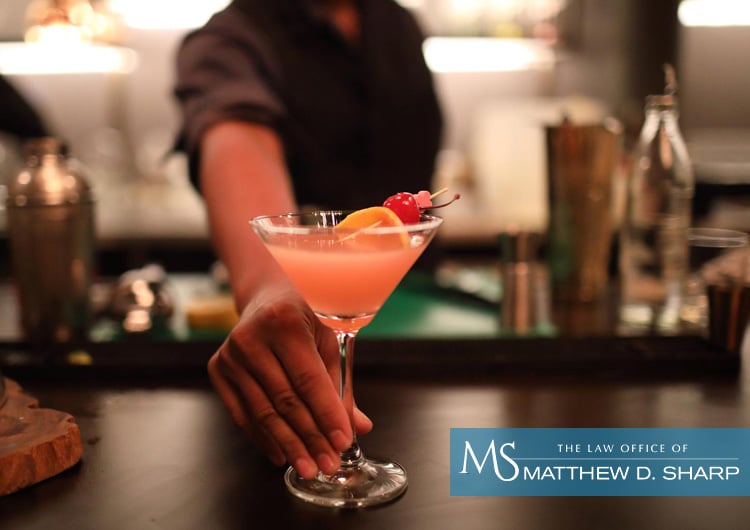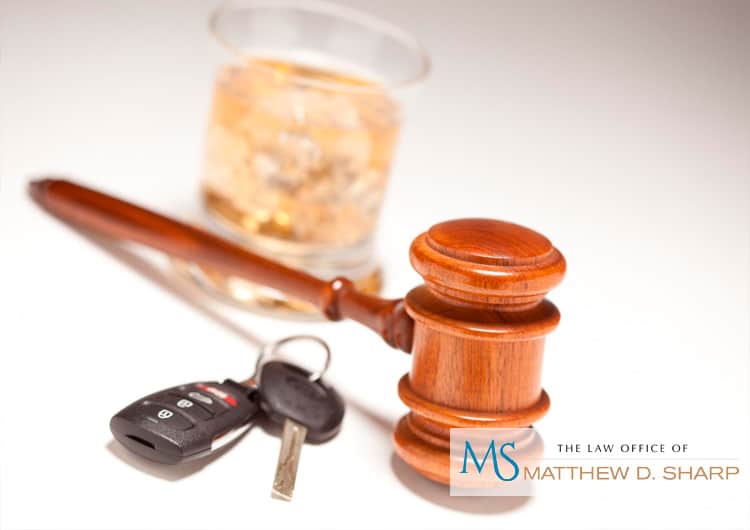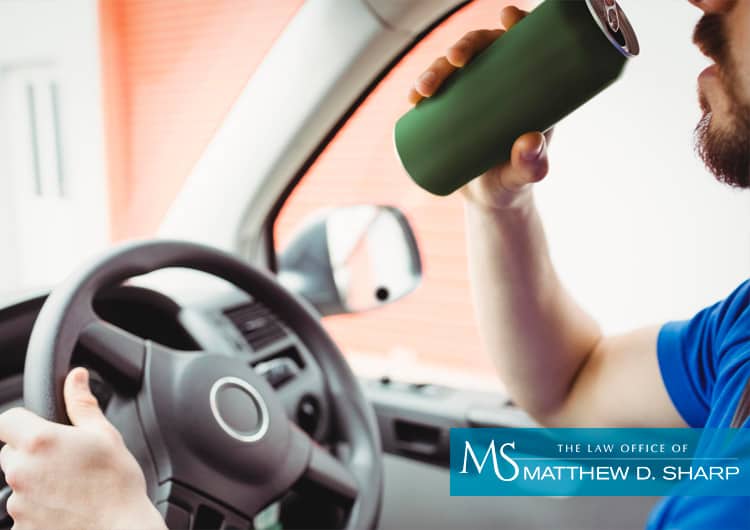Learn who may be legally liable for serving alcohol to a drunk driver who causes an accident

In Texas and all across the U.S., the consequences of drunk driving can be life-changing for all the parties involved.
But who bears the legal responsibility when a driver leaves a bar or a party intoxicated and causes an accident? Is it just the driver, or could the establishment or individual who provided the alcohol also be held accountable?
Texas has specific laws that define the conditions under which a “provider” of alcohol may be liable for the actions of an intoxicated individual. These laws navigate the complex intersections of personal responsibility, social accountability and legal repercussions.
This article aims to explore the nuances of Texas’s alcohol serving laws to clarify who may be held responsible in the tragic aftermath of a drunk driving accident.
What is a dram shop law?
A dram shop law is a statute that holds establishments like bars, taverns and restaurants responsible for serving alcohol to individuals who are visibly intoxicated or under the legal drinking age, particularly if that individual subsequently causes harm or injury, such as in a drunk driving accident.
The purpose of dram shop laws is to place some of the legal responsibility for the actions of intoxicated individuals on the businesses that serve them, alongside the individuals themselves.
The name “dram shop” originates from the unit “dram,” which is a small unit of liquid often used to measure alcohol. Historically, establishments that sold alcoholic beverages by the dram were commonly referred to as dram shops. Therefore, the laws governing the responsibilities of such establishments came to be known as dram shop laws.
Does Texas have a dram shop law?
Yes, Texas passed its dram shop law in 1987 with the intent to establish legal accountability for businesses or individuals that serve alcohol to visibly intoxicated persons who later cause harm or injury. Before the enactment of this law, it was often difficult to hold establishments like bars, restaurants or liquor stores liable for the actions of intoxicated customers.
The dram shop law clarified the legal obligations of alcohol providers, making it easier for injured parties to bring claims and providing a basis for license revocation for violators. The law aims to encourage responsible serving practices, thereby reducing alcohol-related accidents and injuries.
Texas DWI Laws: An Overview
Learn about Texas DWI laws and penalties so you know what to expect and can drink responsibly.
Are bartenders liable for drunk drivers in Texas?
In Texas, bartenders can potentially be held liable for serving alcohol to visibly intoxicated individuals who go on to cause harm, especially in cases of fatal drunk driving accidents. The state’s dram shop law defines a “provider” as someone authorized by a license or permit to sell or serve alcoholic drinks, or who otherwise sells such beverages to a person.
To be held liable under this law, 2 primary criteria must be met:
- When the alcohol was dispensed, the provider should have clearly recognized that the person receiving the alcohol was noticeably drunk and posed a significant risk to themselves and those around them.
- The impaired state of the individual who was given the alcohol has to be a direct contributing factor to the harm inflicted on others.
So, if a bartender or other “provider” serves alcohol to someone who is clearly intoxicated and that person’s intoxication leads to damages such as a drunk driving accident, the bartender could potentially be held liable under Texas law.
Who is typically liable under a dram shop law?
In Texas, the term “provider” isn’t limited to bartenders. It broadly includes anyone who sells or serves alcoholic beverages under the authority of a license or permit. This can encompass a variety of roles and settings, such as:
- Restaurant servers who offer alcoholic beverages to diners.
- Liquor store employees who sell alcoholic products.
- Event hosts who serve alcohol at a private or public gathering.
- Club or lounge staff responsible for serving alcohol.
- Catering staff at events where alcohol is being served.
- Hotel staff who may serve alcohol in bars or via room service.
- Convenience store employees selling alcohol.
- Owners or operators of any establishment with a license to sell alcohol.
One of the key aspects of potential liability under Texas’s dram shop law is that the individual or entity was operating under a license or permit to sell or serve alcoholic beverages when they provided alcohol to the visibly intoxicated recipient.
Are you liable if someone leaves your house drunk in Texas?
For private social hosts dealing with adult guests, Texas dram shop laws typically do not hold them liable for the actions of a guest who leaves their residence intoxicated and subsequently gets into an accident. However, there are exceptions for certain cases involving minors, which are outlined in Texas’s social host liability laws.
What is the social host liability statute in Texas?
In Texas, the social host liability statute is typically seen as a part of the state’s broader dram shop laws. It mainly focuses on the liability of adults in the context of providing alcohol to minors under the age of 18. Specifically, an adult who is 21 years of age or older can be held liable for damages caused by the intoxication of a minor if:
- The adult is not the minor’s parent, guardian, spouse, or custodian as mandated by a court.
- The adult intentionally gave or provided alcohol to the minor or allowed the minor to be given or provided alcohol on premises owned or leased by the adult.
In general, social host liability in Texas primarily concerns the provision of alcohol to minors under specific circumstances, rather than to adults who subsequently cause injury or damage due to intoxication.
Does breaking Texas’s dram shop law result in criminal or civil penalties?
In Texas, violating the dram shop law generally leads to civil penalties, which are aimed at providing financial compensation to the injured party through a personal injury lawsuit. In contrast, criminal penalties are sanctions imposed by the state, often involving jail time, fines and other penalties.
However, it’s worth noting that selling an alcoholic beverage to an intoxicated person with criminal negligence is a distinct offense under Section 101.63 of the Texas Alcoholic Beverage Code.
This particular violation is considered a misdemeanor and could result in a fine ranging from $100 to $500, imprisonment for up to 1 year, or both. If a person has been previously convicted of violating this section, subsequent violations escalate to a misdemeanor punishable by a fine of up to $1,000, up to 1 year in jail, or both.
Long-term Consequences of a DWI Conviction in Texas
Understand the potential fines, penalties and other results of a DWI conviction in Houston.
What’s the burden of proof under Texas’s dram shop law?
In civil cases involving dram shop laws, the burden of proof generally falls on the plaintiff—the person who is bringing the lawsuit. The plaintiff must typically establish several key elements to prove that the provider should be held liable for damages. In the context of Texas dram shop laws, this often includes proving that:
- At the time the alcohol was provided, it was apparent to the supplier that the individual was clearly intoxicated to the extent that they presented a likely danger to themselves and others.
- The intoxication was a proximate cause of the damages that occurred.
These requirements mean that simply showing that a provider served alcohol to someone who later caused an accident is not sufficient for a successful claim. It must be proven that the provider knew or should have known that the person was already intoxicated and would likely pose a risk to public safety by a “preponderance of the evidence,” which means that it’s more likely than not that the provider’s actions met the criteria for liability.
These cases typically require expert testimony, eyewitness accounts, and sometimes even video footage to substantiate the claims.
Get help from an experienced Houston criminal defense lawyer
Texas dram shop laws and social host liability statutes play a critical role in assigning responsibility in incidents involving alcohol and accidents. While the primary burden of responsibility lies with the individual consuming alcohol, providers may also be held liable under certain conditions. Understanding these laws is essential for anyone serving alcohol, as well as for those who find themselves facing DWI charges or other legal consequences related to alcohol consumption.
If you live in Houston, Texas, and are dealing with the complexities of a DWI case, contact experienced DWI defense attorney Matt Sharp at The Law Office of Matthew D. Sharp for help with your case. Matt is a highly skilled DWI defense lawyer dedicated to ensuring that individuals facing drunk driving charges in Houston are afforded due process and achieve the most favorable outcomes possible in their legal proceedings.
Contact his office today to schedule your free consultation to learn more about your rights.
References
ALCOHOLIC BEVERAGE CODE CHAPTER 2. CIVIL LIABILITIES FOR SERVING BEVERAGES. (n.d.). Statutes.capitol.texas.gov. https://statutes.capitol.texas.gov/Docs/AL/htm/AL.2.htm
ALCOHOLIC BEVERAGE CODE CHAPTER 101. GENERAL CRIMINAL PROVISIONS. (n.d.). Statutes.capitol.texas.gov. Retrieved September 21, 2023, from https://statutes.capitol.texas.gov/Docs/AL/htm/AL.101.htm#:~:text=1%2C%201977.-





